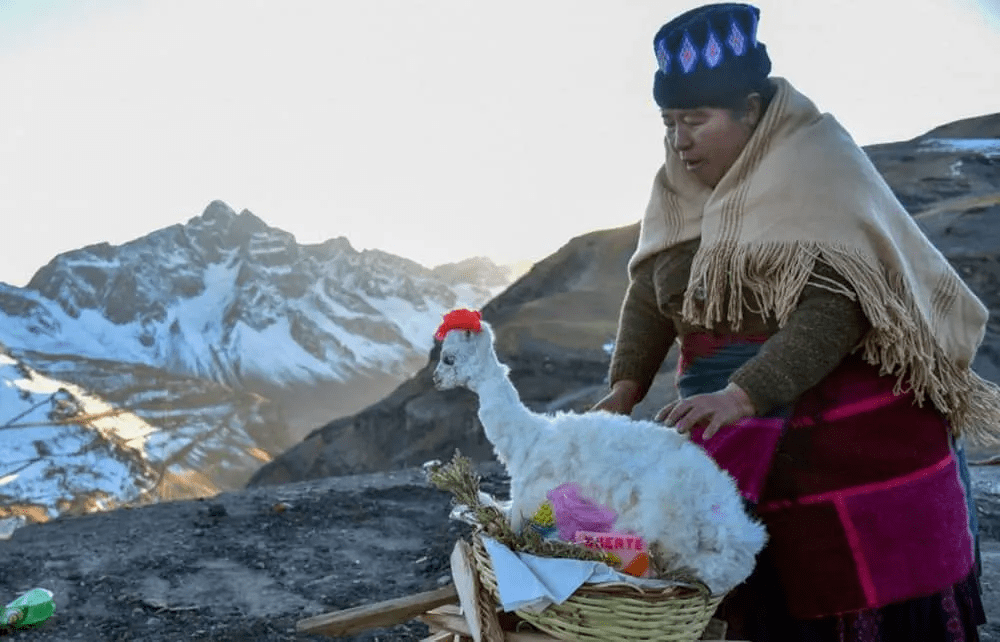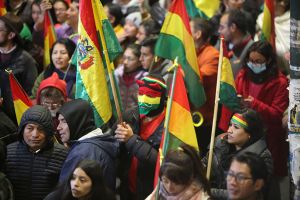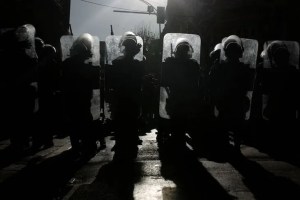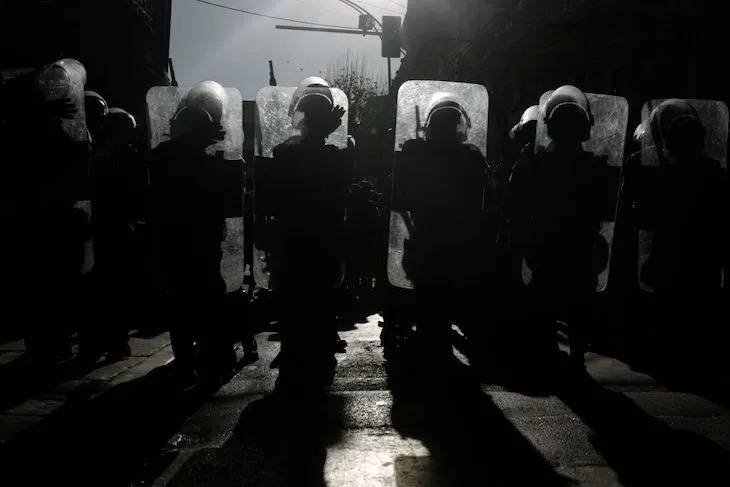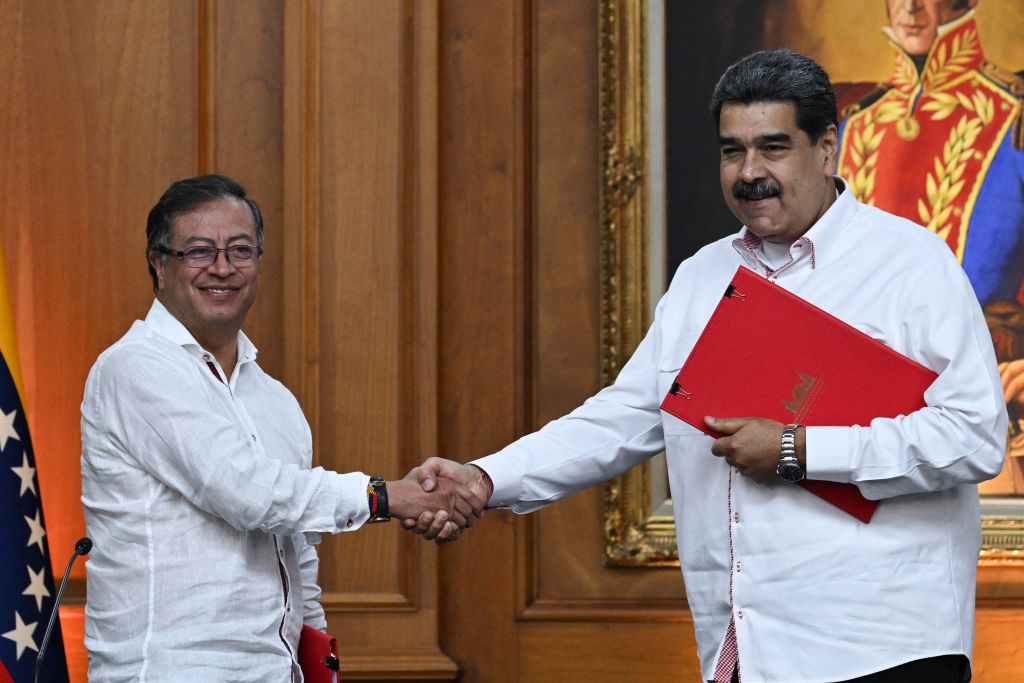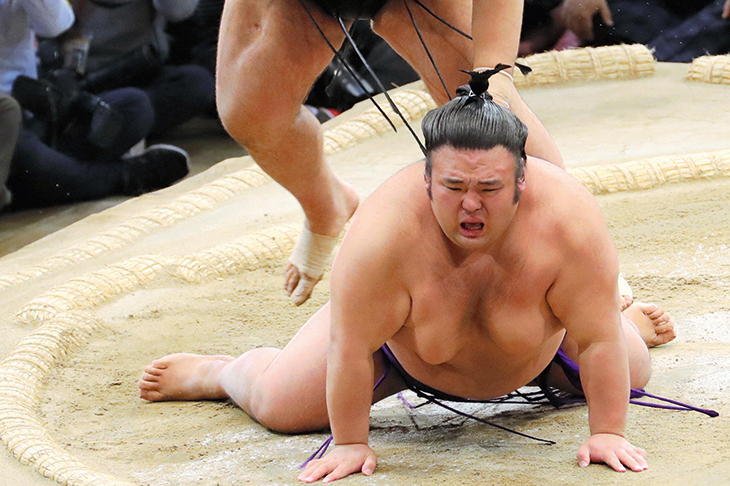La Paz
One summer a few years ago, I joined a group of miners in Potosí, Bolivia, to toast the Andean Mother Earth. I had just moved to La Paz, the country’s political capital, to try my hand as a journalist. As we chatted, a cup of warm beer and shots of spirits were handed around the circle. Before drinking, we had to pour a little on the earth and a little on the head of the white llama that was trussed up between us. My notebook from that day is specked with brownish stains. After we’d finished passing around the spirits, the llama was held down and its throat was cut.
“The most important part of the llama is the blood,” one miner said. “Blood is life, and the gods don’t bleed. If we don’t give them blood, they will take miners’ blood instead.” He looked at me with a slightly menacing smile. “But there is one thing better than llama blood — gringo blood.” They all cackled, and the drinks continued round.
I didn’t think too much of his joke at the time. Bolivian miners take some pleasure in shocking foreigners, whether by swigging near-pure alcohol, playing with dynamite or joking about human sacrifice. But the moment came back to me last month when a young man appeared on the news — slurring, bloodied and covered in dirt — claiming he had just punched his way out of a coffin buried under a Bolivian building site. He said he’d been used as a sullu: a sacrifice for the Pachamama or Mother Earth.
A sullu traditionally refers to a dried llama fetus. It may, for example, be buried under a building to appease the Pachamama and ward off accidents. The use of sullus is an ancient practice and remains commonplace. In La Paz, there’s a witches’ market that sells them next to trinkets for tourists. Up in El Alto, the neighboring city which is almost entirely Aymara and Quechua, Bolivia’s two largest indigenous groups, there are rows of cabins where ritualists sell sullus alongside coca leaves, sugar figurines, cigarettes and alcohol. Offerings are put together and burnt over braziers beneath three peaks of Illimani, La Paz’s sacred mountain.
The practices of a sullu offering depend on where you are in Bolivia. The many thousands of small-scale miners in the highlands like to go a little further than the city dwellers. The stakes for them are high: they spend their days crawling through hand-hacked tunnels, inhaling the particles that will one day likely kill them, hoping to find a good vein of tin or silver. They make daily offerings to El Tío, the Uncle, a mercurial, devilish figure who lives beneath the earth. It’s not uncommon for Catholic Bolivians to leave this god of the underworld cigarettes or spirits, despite strong condemnation from the church.
For the traditional festival to the earth gods, they splash out on a white llama. When its throat is slit, the blood is collected in bowls and fed to the earth, painted on cheeks and spattered over the mouth of the mine. Then the animal is butchered, its innards buried and the meat barbecued for lunch. The bones, burnt to ashes, go to El Tío.
The more one offers, the more one receives. And though historians and spiritual leaders say it would be a perversion of ancestral rites, there have long been rumors of human sacrifice. The story told by the bloodied man fits the urban myth, which says that drunks are plied with alcohol before being buried alive. The myth was popularized in the 2008 film Elephant Cemetery. The title refers to establishments where alcoholics can pay to drink themselves to death. In the film, the protagonist spends his last weeks of life drinking in one of these bars and stewing in memories, thinking back to a time when he sold a drunk friend to some builders to be buried as a sullu.
Such a bargain might not even be necessary. Walk through La Paz early on a Sunday morning and you’ll see people passed out on the pavement. Look up and you’ll see skyscrapers going up around the city.
The recent report isn’t the first to make it to the media. From time to time, someone will show up claiming a miraculous escape; others disappear and bodies are found in suspicious circumstances. Homeless people in Bolivia worry about where to sleep, for fear of being spirited off to a midnight sacrifice.
Rarely are any of the cases formally reported or pursued. This latest one won’t be either. The man’s mother has said that her son, while traumatized, would not be taking the matter any further, because they lack the money to bribe police and prosecutors into action. Some have cast doubt on the details of his story. The police say they would prosecute him if he turns out to be lying.
But people seized the chance to revive the sullu story. In pulpy news reports, bemused construction workers were asked whether they’d ever seen someone buried alive. Presenters on chat shows frowned and shook their heads, lamenting the turn from tradition to crime.
Online, it became the joke of the week. Black humor is pervasive in the country. Last week, I was invited to a sullu-themed event at a nightclub. (The flyer, tastefully, depicted a llama fetus rather than a human sacrifice.) I didn’t go, but I did go to a karaoke bar. When the birthday girl had had so much to drink that she ended up on the floor, everyone looked at each other and said “Ya está lista” — she’s ready. We all cackled, and the drinks continued round.
This article was originally published in The Spectator’s UK magazine. Subscribe to the World edition here.



